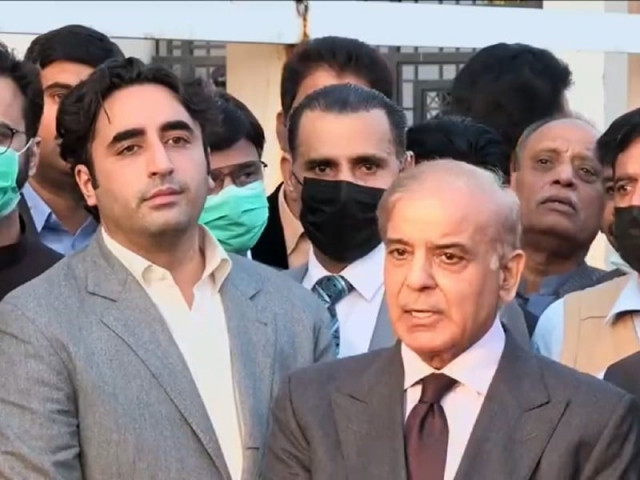PML-N, PPP to scrap caretaker system
Both parties also decide to reform electoral process

The ruling PML-N and its coalition partner PPP have reached a consensus to abolish the caretaker setup system and reform the electoral process.
Both parties have agreed that the head of the outgoing government will remain in office until the new general elections, eliminating the need for a caretaker government.
Additionally, after completing its term, the prime minister's cabinet will be dissolved, while the premier will continue to serve. Furthermore, the two parties have endorsed the drafting of legislation for electoral reforms.
Recommendations will be made to make the electoral process simple and easy. Both the PML-N and PPP will take other parties into confidence on the proposed reforms.
Besides, the PML-N-led alliance is also aiming to go for at least three major constitutional amendments, including abolishing the National Accountability Bureau (NAB), restoring Articles 62 and 63 to their original position, and empowering local governments.
A PML-N leader said initially the party was eying only two amendments: abolishing NAB and changing the wording of Articles 62 and 63 back to the original.
He added that both of them were also included in the party’s manifesto as well. He maintained that the third one had recently been included after the PML-N and MQM-P inked a formal agreement to empower local governments.
The PML-N leader continued that this was the reason the MQM-P had decided to sit on treasury benches.
The MQM-P-proposed amendment wants the federation to establish local governments under Article 140-A.
In addition, it wants to introduce Articles 140-B (which deals with the powers and functions of the local governments) and Article 140-C (which relates to the finances of the local governments). Background discussion with PML-N leaders revealed that the addition of reserved seats had emboldened the ruling alliance to take practical steps as a two-thirds majority was required for the constitutional amendments.
They said currently 225 (67%) out of the 336-member National Assembly was needed for making a constitutional amendment, saying PM Shehbaz Sharif’s election had already ensured that the coalition was supported by 201 MNAs.
They added that addition of the reserved seats would fill the required gap.
In January, three-time former premier Nawaz Sharif while launching the PML-N’s manifesto had declared in unequivocal terms that if his party secured victory in the February 8 general elections, NAB would be abolished.
Back in 2018, while grappling with three corruption references, Nawaz had expressed regret that he could not eliminate what he termed “draconian NAB laws” during his tenure.
“Abolish NAB,” the PML-N’s 51-page manifesto stated. “[It will] strengthen existing anti-corruption institutions and agencies.”
In addition to the NAB abolition pledge, Nawaz, who faced disqualification under Articles 62 and 63 and rallied behind the slogan of 'Vote Ko Izzat Do' (Respect the Vote), vowed in the manifesto to establish the unequivocal supremacy of parliament.
To do that, the party leader said, Articles 62 and 63 would be amended or restored to their original position of 1973, while Article 63-A would also be clarified.
Under Article 62(1)(f) of the Constitution of Pakistan, a person cannot be qualified as a member of the national or provincial legislatures if he is not ‘Sadiq and Ameen’ – truthful and trustworthy.
On March 2, 1985, General Ziaul Haq had issued the Revival of Constitution of 1973 Order (RCO), changing 67 clauses and sections of 280 articles of the Constitution.
Some of the reworked language was clauses in Article 62, which now required members of parliament to meet the conditions of being Sadiq and Ameen – two Arabic terms which were never clearly defined in English, the language of the Constitution.



















COMMENTS
Comments are moderated and generally will be posted if they are on-topic and not abusive.
For more information, please see our Comments FAQ